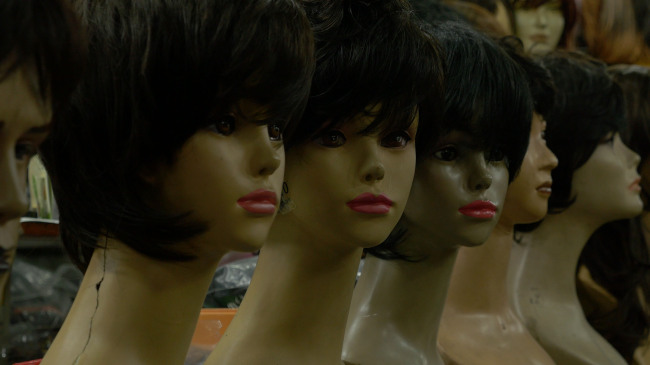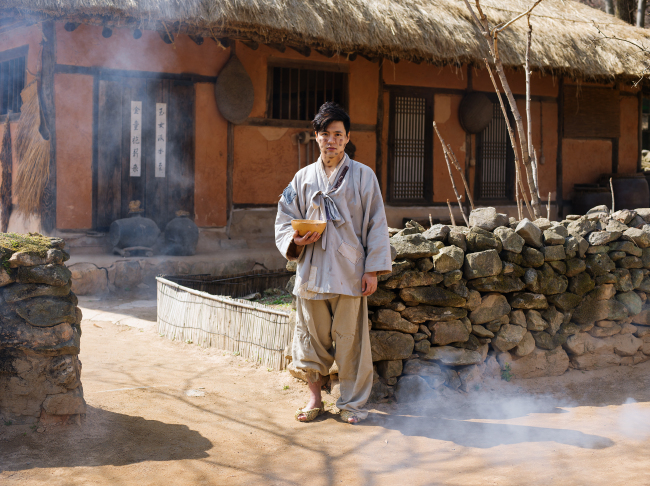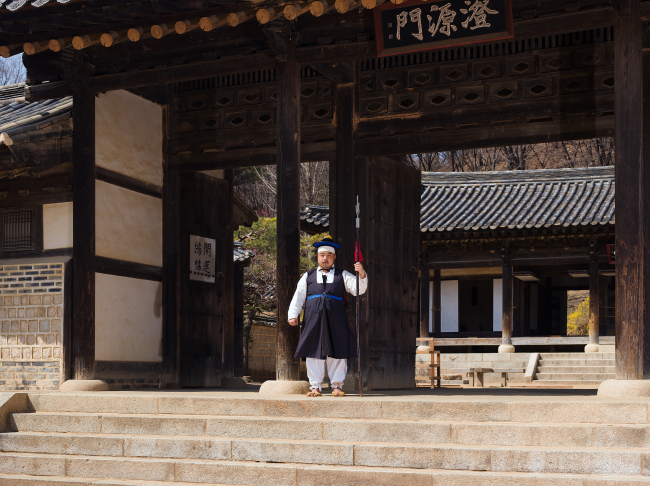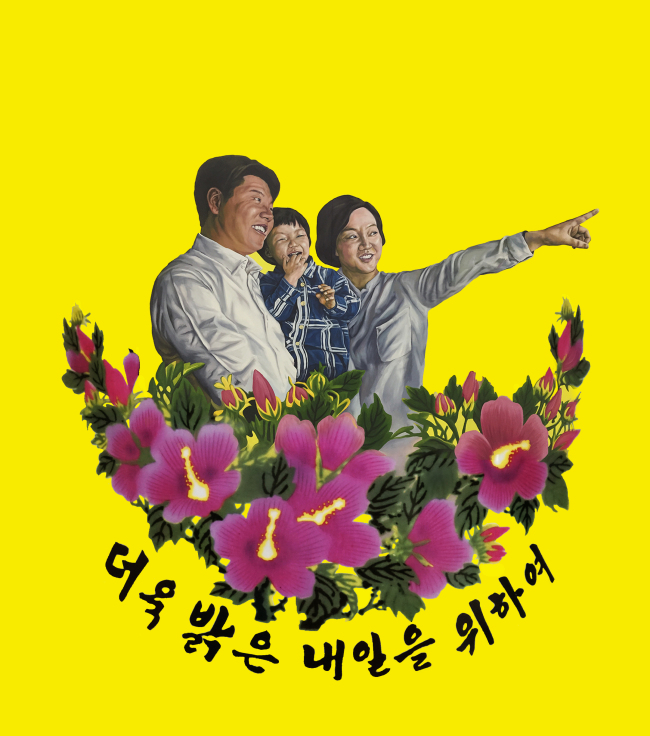Before Korea became the leading exporter of semiconductors and cellphones, the top money magnet was wigs. Wigs, along with textiles, shoes and plywood, were the pillars of Korea’s exports in the 1960s and ’70s, until cheap-labor countries entered the market.
The once-flourishing wig making process is reenacted by contemporary artist Lee Wan for his new exhibition in Seoul. In an 11-minute video, the artist cuts his long hair and asks a wig maker in Namdaemun to make a wig with it.
 |
A scene from the wig making video, part of Lee Wan’s “Made in Korea” series |
This is part of his “Made In” series in which Lee takes major export items of developing countries in Asia and tries to make them from scratch. In doing so, the artist traces the beginning of the industries, which leads to explain the impact of Western colonialism on Southeast Asian countries and the influence of capitalism on their societies.
Previous projects had him harvest sugar at a sugarcane farm in Taiwan; make a silk jacket in Thailand and grow rice in Cambodia. He plans to visit Vietnam, Malaysia and Laos this year.
In the ongoing exhibition, Lee turns to Korea, his native country, choosing the wig because it offers “a window to the Korean life in the 1970s and changes that followed.”
 |
“Worker” by Lee Wan |
 |
“Worker” by Lee Wan |
“The wig businesses in Korea went downhill in the 1980s due to soaring labor costs. Wig factories moved to China and most small wig factories here closed,” he said.
Now that the labor cost in Korea is so high, the rate that a wig-maker earns per piece exceeds the price of a wig made in China, he added.
The wig-maker he found in Seoul’s Namdaemun Market is one of the very few left in Korea.
The woman, now in her 60s, buys hair from China. In the old days, Koreans purposely grew their hair to sell it to wig-makers for money.
“She is a skilled wig-maker. Usually it takes her just a couple of days to make a wig. But this time, she had to teach me first and I also did my share of work. So it took us about 10 days to complete the wig,” he said. The wig is on display in the exhibition.
In another “Made in Korea” work also on exhibit, Lee travels back to the Joseon period (1932-1910), Korea’s last ruling dynasty.
This involved a physical trip to the Korean Folk Village, a Joseon-era theme park in Yongin, Gyeonggi Province. There, he found a common thread between the societies of Joseon and modern Korea.
“The staff there are employed to play different positions on the Joseon social hierarchy, from slaves, farmers and beggars to the noble class. Interestingly, their employment contract is one of the things that make up the hierarchy of Korea’s modern labor market,” said Lee.
Most of the staff, who are required to dress in Joseon costume and act like they came from the Joseon period, are on temporary labor contracts, a major labor issue in Korea due to their disadvantages over regular contracts. The surreal portraits of the staff Lee met are now on display at the exhibition.
What sums up the fragmented images of Korea is a large yellow painting reminiscent of a communist propaganda image. Drawn from the style of a North Korean propaganda poster, Lee made the prototype image of government campaigns in the 1970s conducted under the authoritarian Park Chung-hee government.
 |
“For the Brighter Future” by Lee Wan (313 Art Project) |
Against a bright yellow backdrop, family members adopt a look of hope. The unrealistically positive image is intensified with a decorative spray of mugunghwa, the national flower of Korea and the phrase “For the Brighter Future” written in the handwriting of the late President Park.
“I hope this exhibition helps viewers find their own perception of Korea,” said Lee.
The exhibition runs through May 20 at 313 Art Project gallery in Dosandae-ro, Seoul. For more information, call (02) 3446-3137.
By Lee Woo-young (
wylee@heraldcorp.com)










![[Today’s K-pop] Blackpink’s Jennie, Lisa invited to Coachella as solo acts](http://res.heraldm.com/phpwas/restmb_idxmake.php?idx=644&simg=/content/image/2024/11/21/20241121050099_0.jpg)
